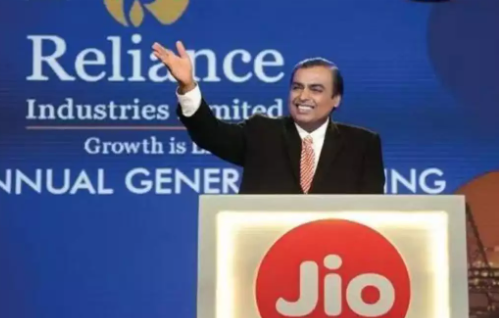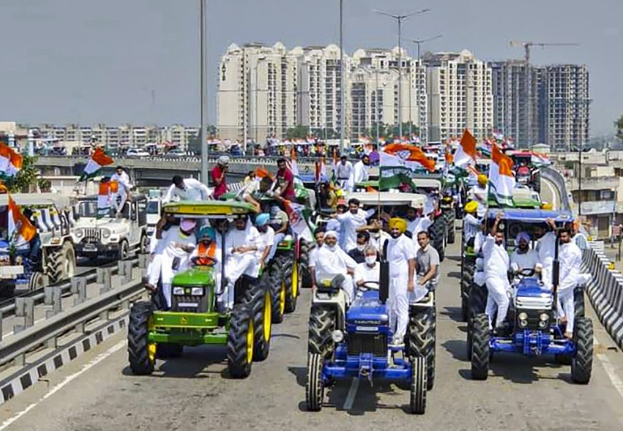
Farmers Mobilize with Tractors, Unleashing Political Critiques, Condemned by Haryana CM, Controversial Agricultural Uprising
Farmers protest in Punjab, coupled with the Haryana
police’s stringent measures to prevent protesters from entering Haryana, has escalated tensions in the region. Chief Minister Manohar Lal Khattar has expressed concerns over the farmers’ tactics, likening their movements to that of an army and criticizing their reliance on tractors as a mode of transport.
In a recent video, farmer leader Jagjit Singh Dallewal stirred controversy by allegedly stating that Prime Minister Narendra Modi’s popularity needed to be diminished. This statement has fueled further debate over the true motives behind the farmers’ agitation, with some suggesting it’s a veiled political agenda.
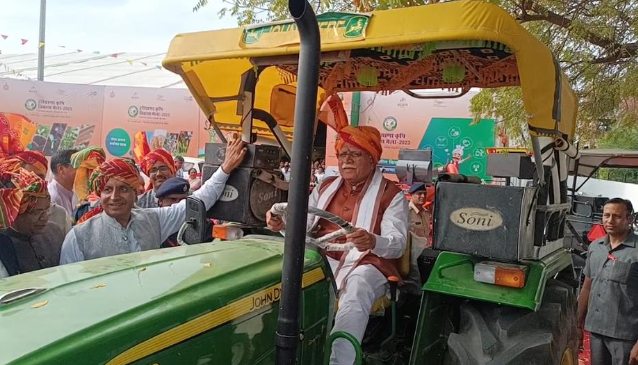
Khattar wasted no time in condemning Dallewal’s remarks, labeling them as overtly political. He questioned the efficacy of such protests in swaying public opinion and reminded citizens of the chaos that ensued during previous demonstrations, notably the incident at the Red Fort. The chief minister reiterated his commitment to maintaining law and order in Haryana, vowing to prevent any disruptions caused by protesters.
The standoff between the farmer and the Haryana police at the Shambhu and Khanauri borders has intensified, with authorities resorting to tear gas to disperse the crowds. Meanwhile, farmer continue to camp at the borders, undeterred by the increased surveillance by Delhi police.
Amidst the growing tensions, three Union ministers are scheduled to meet with the protesting farmer in Chandigarh for the third time to address their grievances. This meeting reflects ongoing attempts at dialogue and negotiation to find a resolution to the impasse.
The farmers’ protest, now entering its third day, underscores deep-seated frustrations within the agricultural community regarding government policies and agricultural reforms. However, the methods employed by the protesters and the political undertones of certain statements have complicated an already volatile situation.
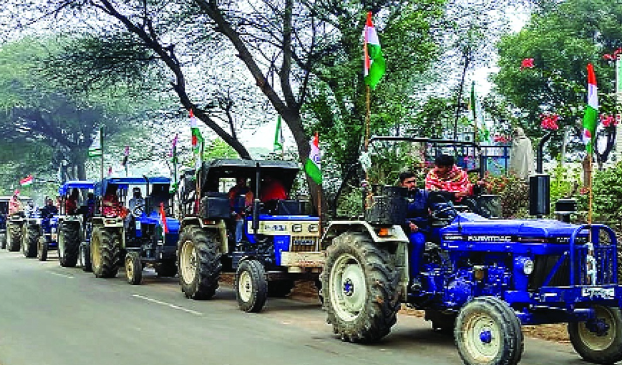
Critics argue that the use of tractors and other agricultural equipment as symbols of protest may be more symbolic than practical, while others question the legitimacy of bringing overtly political agendas into what should be a discussion centered on farmers’ rights and livelihoods.
The role of social media in amplifying and shaping the narrative surrounding the protests cannot be understated. Videos and statements shared online have the power to sway public opinion and fuel further discord, highlighting the need for responsible communication from all parties involved.
As tensions persist and negotiations continue, it remains crucial for all stakeholders to prioritize peaceful dialogue and constructive engagement. Only through genuine efforts to address the underlying concerns of the farming community can a lasting resolution be achieved, ensuring the welfare and prosperity of farmers across the region.
The farmers’ protest, which has garnered significant attention and support, reflects a broader dissatisfaction with agricultural policies and reforms perceived as detrimental to the livelihoods of farmers. While the right to protest is fundamental in a democracy, the methods and messaging employed by protesters can shape public perception and impact the outcome of negotiations.
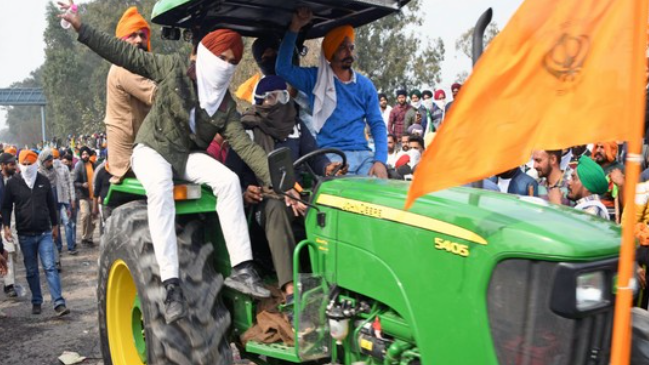
The video featuring Jagjit Singh Dallewal’s controversial remarks adds a new dimension to the debate, raising questions about the underlying motivations driving the protests. Accusations of political agendas and manipulation of public sentiment further complicate an already complex issue.
In response to the escalating tensions, Chief Minister Khattar’s call for restraint and adherence to the rule of law is understandable. Ensuring public safety and preventing disruptions to daily life are paramount concerns for any government faced with mass protests.
However, it’s essential to acknowledge the underlying grievances of the farmers and address them through meaningful dialogue and policy reforms. The agricultural sector plays a vital role in India’s economy, and the well-being of farmers directly impacts the nation’s prosperity.
For the latest updates-click here.

